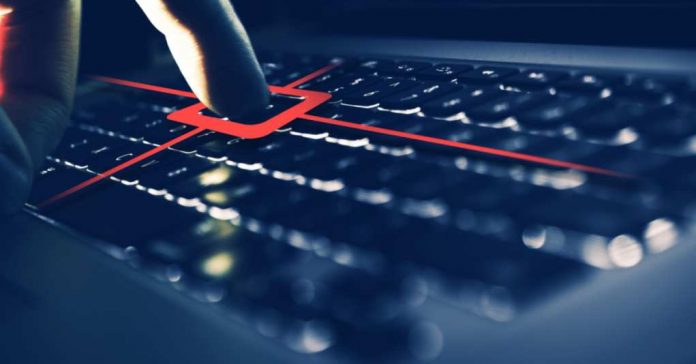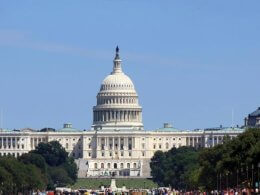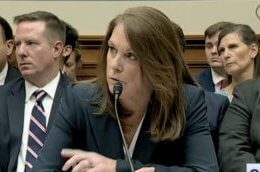On Tuesday, a House Judiciary Committee report revealed emails belonging to officials from the Department of Homeland Security (DHS) created a Stanford University-affiliated "disinformation" group that censored speech before the 2020 Presidential election.
The House Panel's staff interim report stated that exclusive emails and internal communications were obtained from the group, known as the Election Integrity Partnership (EIP), showing how it worked with DHS' Cybersecurity and Infrastructure Security Agency (CISA) to flag, suppress and delete online speech in coordination with prominent technology companies.
One of EIP's founding partners, the Atlantic Council's Digital Forensic Research Lab, described CISA's central role in the alleged censorship campaign in the Summer of 2020.
"I know the Council has a number of efforts on broad policy around the elections, but we just set up an election integrity partnership at the request of DHS/CISA and are in weekly comms to debrief about disinformation," Senior Director Graham Brookie of the Atlantic Council's Digital Forensic Research Lab stated.
The staff report says that the federal government and universities "pressured social media companies to censor true information, jokes, and political opinions."
The pressure was "largely directed in a way that benefited one side of the political aisle. Factual information posted by Republicans and conservatives was labeled as 'misinformation' while false information posted by Democrats and liberal individuals and groups were largely unreported and untouched by the censors."
Some examples of "misinformation" posts were from public officials such as then-President Donald Trump, North Carolina Republican Senator Thom Tillis, Kentucky Republican Representative Thomas Massie, media outlets such as Newsmax and the Babylon Bee, and conservative commentators.
The Judiciary report also found that while under the control of CISA's Countering Foreign Influence Task Force, the central focus of the federal government officials' effort was to "censor Americans engaged in core political speech in the lead-up to the 2020 election."
DHS stated that it could not "openly endorse" a centralized portal to flag information in a May 2020 email released in the staff report, allowing Stanford's EIP to take up the effort in the Summer of that year.
The task force used a tactic known as "switchboarding" to refer to delete requests from state and local officials to Facebook, Twitter, and other social media sites, which CISA-CFITF director Brian Scully confirmed in testimony in the ongoing legal case Missouri vs. Biden.
Emails from the interim staff report show Scully informing members of the Office of the Colorado Secretary of State that he had highlighted parody accounts on Twitter and advised Facebook to take down a post about the election that was deemed "misinformation."
The conversation shows that CISA recognized it was on shaky legal ground by engaging in the effort and chose to add a disclaimer underneath many emails that its requests were "voluntary" and the agency "neither has nor seeks the ability to remove what information is made available on social media platforms."
Those emails also included a line that "information may also be shared with law enforcement or intelligence agencies," implying those agencies could take action if the posts were not removed from the social media website.
The Judiciary staff report also revealed that Stanford students were working at both CISA and EIP simultaneously. Former CISA director Chris Krebs testified to the House subcommittee that "switchboarding" was done before the agency was created.
Speaking to the New York Post, CISA executive director Brandon Wales said the agency "does not and has never censored speech or facilitated censorship. Every day, the men and women of CISA execute the agency’s mission of reducing risk to U.S. critical infrastructure in a way that protects Americans’ freedom of speech, civil rights, civil liberties, and privacy."
Related Story: U.S. Cyber Command Says Iranian Hacker Gained Access to Election Results Server in 2020










